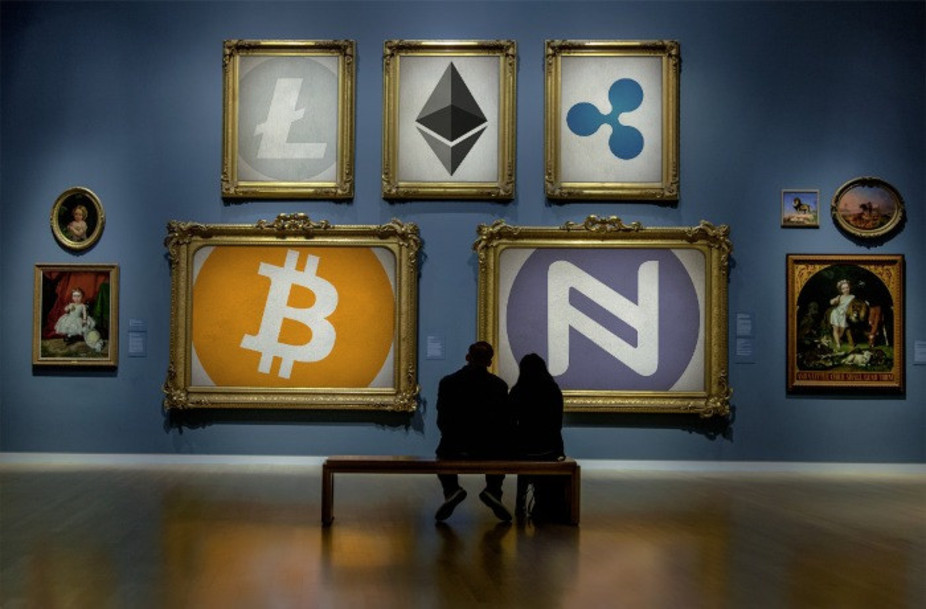The value of one bitcoin recently hit a record high of US$3,025, a staggering rise of over 200% in value this year alone.
Aswath Damodaran, professor of finance at the New York University, known as Wall Street’s “dean of valuation”, has said that among the younger generation, digital currencies have replaced gold as a choice of investment and that, sooner or later, currencies such as bitcoin and ethereum will compete against nation-state paper currencies.
So could bitcoin become a popular currency and decrease the popularity of euros, dollars, pounds, roubles and others? For anything to be seen as “money” it needs to meet three functions – a store of value, a measure of value and a medium of exchange. Bitcoin’s volatility shows that it is an infant in meeting these three criteria, but has the potential to do so.
However, digital currencies like bitcoin are just one application of the blockchain technology that makes them possible. Blockchain, as the BBC explains, is:
a method of recording data – a digital ledger of transactions, agreements, contracts – anything that needs to be independently recorded and verified as having happened. The big difference is that this ledger isn’t stored in one place, it’s distributed across several, hundreds or even thousands of computers around the world. And everyone in the network can have access to an up-to-date version of the ledger, so it’s very transparent.
Blockchain combines the security of cryptography, the storage and transmission of data in coded form, with peer-to-peer networks to create a shared database of transactions that is trusted, yet controlled by no one.
If blockchain finds uses in various industries we could see a more digitally integrated global economy, something that could enhance economic growth and decrease poverty.
Huge potential
In business today, we still require trusted administrators to manage and record the numbers and databases – auditors, supervisory boards and so on. The potential of blockchain is that it offers the chance to “distribute” these digital ledgers to others through a network of computers across the world. It could actually dispense with those businesses that are based on trusted relationships – such as banking, auditing, solicitors, even aspects of government. For example in Sweden, Georgia and Ukraine property registers are being moved on to the blockchain.
In finance, people rarely lend directly to each other, hence the need for banks as trusted go-betweens. The beauty of cryptocurrencies such as bitcoin or ethereum is that they remove the need for the trusted third party, using instead an encrypted, secure database. This has huge implications for any business that requires the verification of payments and performance of contracts – that is, most businesses.
The beauty of blockchain is that something can be unique and stored digitally with ease, without needing an equivalent in the real world. For example, things like contracts, wills, deeds and share certificates might only require a piece of code stored on the blockchain that represents the exchange. Instead of a trusted intermediary verifying transactions, the computers of the shared network of bitcoin users themselves perform the verification at no cost to those involved in the transaction.
Truth and trust
This verification process holds the seeds of change across huge numbers of industries. The distributed ledger – the blockchain – offers the chance to enhance truth and trust in every system to which it is applied. It can prove who owns what at any given moment. Anything that currently exists to verify contracts, ownership, payments and even performance can be shifted to the blockchain.
This would transfer power away from those who currently manage or verify transactions – a seismic change to the way the world currently operates. As with any power shift, those holding power are reluctant to surrender it. The “winners” in this scenario will come from existing companies rather than start-ups, given that for this new system to work, it requires buy-in and trust – existing brands already have this advantage.
So what are blockchain’s main advantages? By performing the functions of record keepers and managers it would enhance decentralisation, reduce the amount of intermediaries involved and provide an alternative to how value can be stored. Physical as well as digital assets could be uniquely verified online to prove ownership.
As transactions stored on the blockchain could be independently verified and traced, it would be easier to fight crime, counterfeiting and fraud, reducing systemic risk in the financial system. A distributed digital ledger would make it near impossible to change or falsify data, because data would have to be altered across all the related “blocks” in the digital chain, so any tampering would be exposed. Consequently associated costs would fall, enhancing economic growth and prosperity.
A dramatic disruption is happening already in the financial industry: the world’s largest custodian bank, BNY Mellon, is using a blockchain based platform for government bond settlement. And one of the Bank of England’s research focus areas is based around financial technology or “fintech” and how it affects the way markets and society function.
Another benefit would be to make micropayments possible digitally. A country such as India, where huge number of people still do not have access to banking, could experience profound economic change if brought within their reach, helping them save, borrow and plan for their future.
Taking back our privacy
The online marketing and advertising industry has feasted on data generated by internet users, and social media platforms such as Facebook – with more than two billion users – Google and Amazon collect considerable amounts of individualised data on us to target adverts at us. Blockchain could enhance our online privacy, by allowing us to store our digital footprint on our own unique blockchain and control who has access to it. Rather than these massive organisations building up records of our tastes and preferences, this data would be decentralised and within our own control.
Blockchain could enhance entrepreneurship in developed and developing countries, breaking down barriers built from embedded bureaucracy and corruption by providing a means to bypass existing power structures. For example, the digital ledger Everledger is tracking a real-life object – diamonds – to prove their provenance and ownership. As a result, trust in the system is enhanced.
When the internet came into being, it was a disruptive, game-changing force for many industries – blockchain technology holds the same potential. In moving trust from the current “verifiers” to a distributed blockchain system, the world could see a massive shift in power to the masses – a truly revolutionary idea.
 The authors do not work for, consult, own shares in or receive funding from any company or organization that would benefit from this article, and have disclosed no relevant affiliations beyond the academic appointment above.
The authors do not work for, consult, own shares in or receive funding from any company or organization that would benefit from this article, and have disclosed no relevant affiliations beyond the academic appointment above.



 Standard Chartered Joins China's Digital Yuan Trials, Eyes Cross-Border Payments
Standard Chartered Joins China's Digital Yuan Trials, Eyes Cross-Border Payments  JPMorgan, Citibank Korea Face FTC Penalties Over Collusion; Supreme Court Upholds Ruling
JPMorgan, Citibank Korea Face FTC Penalties Over Collusion; Supreme Court Upholds Ruling  Kraken's Jesse Powell Criticizes SEC Over Legal Action
Kraken's Jesse Powell Criticizes SEC Over Legal Action  Robinhood Launches Credit Card for Gold Customers
Robinhood Launches Credit Card for Gold Customers  Nasdaq Proposes Fast-Track Rule to Accelerate Index Inclusion for Major New Listings
Nasdaq Proposes Fast-Track Rule to Accelerate Index Inclusion for Major New Listings  Visa Expands Digital Wallet Capabilities with Visa Commercial Pay
Visa Expands Digital Wallet Capabilities with Visa Commercial Pay  Robinhood CEO Vlad Tenev: Blockchain Can Open Private Markets to Retail Investors
Robinhood CEO Vlad Tenev: Blockchain Can Open Private Markets to Retail Investors 


































